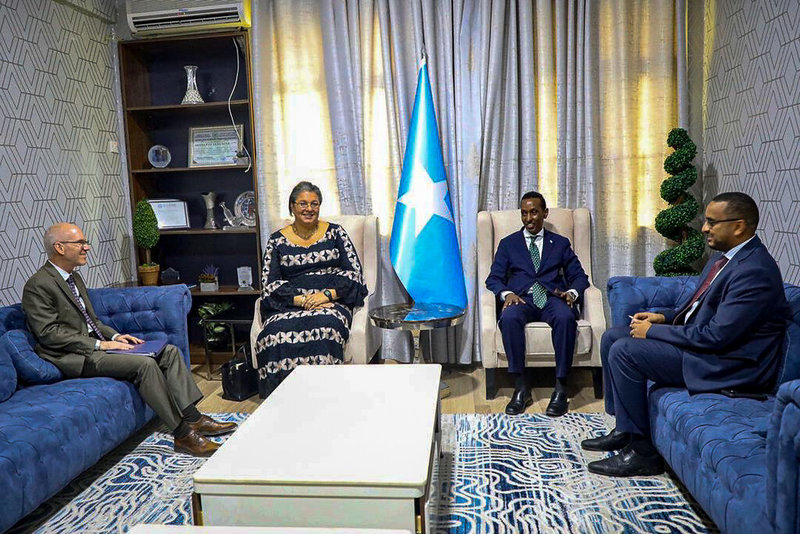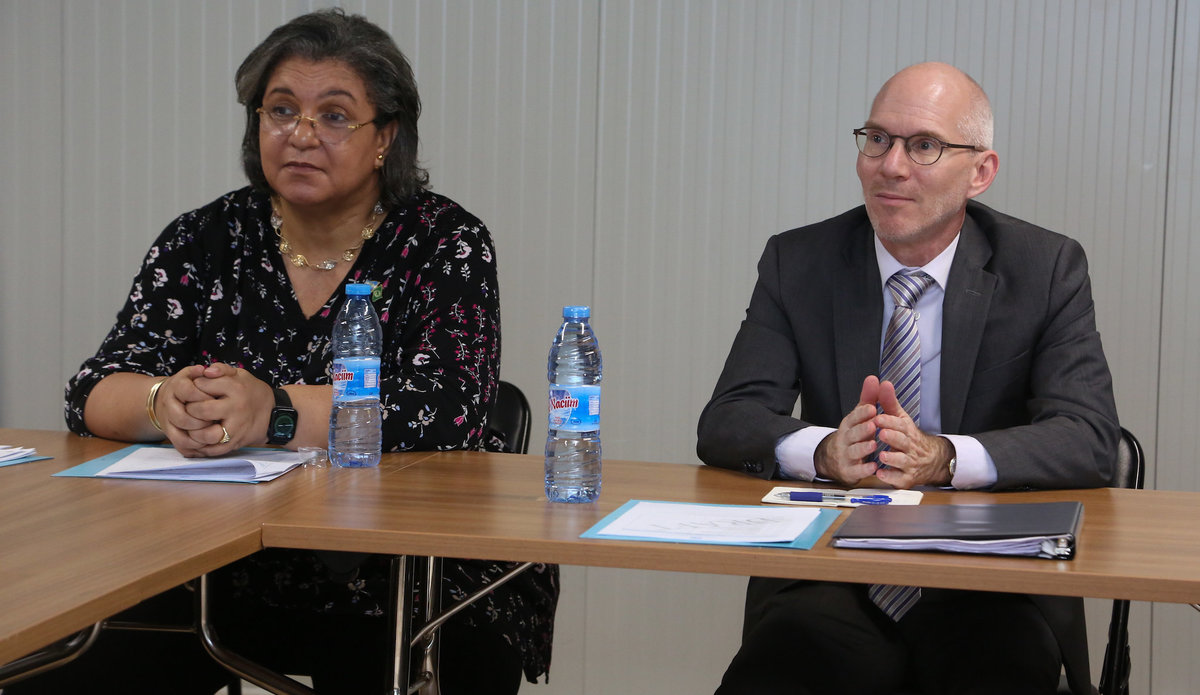Learning first-hand of peace and political participation challenges, UN envoy to African Union wraps up first visit to Somalia
Mogadishu – Wrapping up her first visit to Somalia, a senior United Nations official charged with the world body's relations with the African Union (AU) today highlighted the “unique situation” the country finds itself in regard to its efforts to improve security.
“We have a unique situation in that this is an African-led peace enforcement mission [AMISOM], and then we have a United Nations support mission, UNSOM, and a logistics support mission, UNSOS, that is working with AMISOM, in order to create favourable conditions for state-building here in Somalia,” said the UN Secretary-General’s Special Representative to the African Union, Hanna S. Tetteh, who also serves as the Head of the UN Office to the African Union (UNOAU), at the end of a three-day visit to the country.
In April 2017, UN Secretary-General António Guterres and AU Commission Chairperson Moussa Faki Mahamat signed a framework agreement for cooperation and partnership on peace and security. Essentially, the agreement committed the UN and AU to work together to address the continent's peace and security challenges, with a focus on preventative diplomacy but also dealing with the various stages of conflict cycles, where necessary.
In the case of the Horn of Africa country, the AU has deployed a regional peacekeeping mission, the African Union Mission in Somalia (AMISOM), with the approval of the UN. AMISOM is to gradually hand over security responsibilities to Somali security forces, contingent on their abilities along with political and security progress in Somalia, efforts which are supported by the UN Assistance Mission in Somalia (UMSOM). AMISOM receives logistical field support from the UN Support Office in Somalia (UNSOS).
“Since I assumed office… I had not had the opportunity to visit Somalia to have a sense of how this actually is working in practice,” Ms. Tetteh continued, noting that the visit had provided an “opportunity to understand the challenges both the UN and the AU are facing in Somalia and the efforts that are being made to address those challenges.”
Range of meetings
In addition to meeting the heads of UNSOS and UNSOM – Lisa Filipetto and James Swan, respectively – the visiting UN official met with Somalia’s Foreign Affairs Minister, Ahmed Isse Awad, and the Speaker of the House of the People, Mohamed Mursal Sheikh Abdirahman.

She also met the head of Hirshabelle state, President Mohamed Abdi Waare, members of his cabinet and the deputy speakers of parliament during a visit to that Federal Member State’s capital, Jowhar, yesterday. Ms. Tetteh also held meetings with AMISOM’s leadership, including the AU Commission Chairperson’s Special Representative, Ambassador Francisco Madeira, as well as ambassadors representing the countries which contribute troops to AMISOM.
“I believe that this will very much help my work and would give a better understanding of what my colleagues in the UNOAU who support the African Union peace operations department in their work with AMISOM have to deal as challenges – though I admit that there is very much more to learn and I look forward to being able to make the trip again,” Ms. Tetteh said.
‘Eye-opening session’
Of particular note for the visiting UN official was her meeting in the country's capital with female members of parliament – a role she could relate to in light of her experience as a parliamentarian in her native Ghana, and which she described as an “eye-opening session” after hearing about the challenges they faced.
“Across the African continent there is inadequate representation of women at all levels of government, but most especially in the legislature, where participation depends on being successful in an election and given the fact that a majority of the Somali population are women – indeed it is hoped that as they discuss legislative reform, there will be great opportunities for Somali women to participate in the governance process, to participate in the state-building process, and to help build the future that the country see’s for itself.”
 UN
UN





